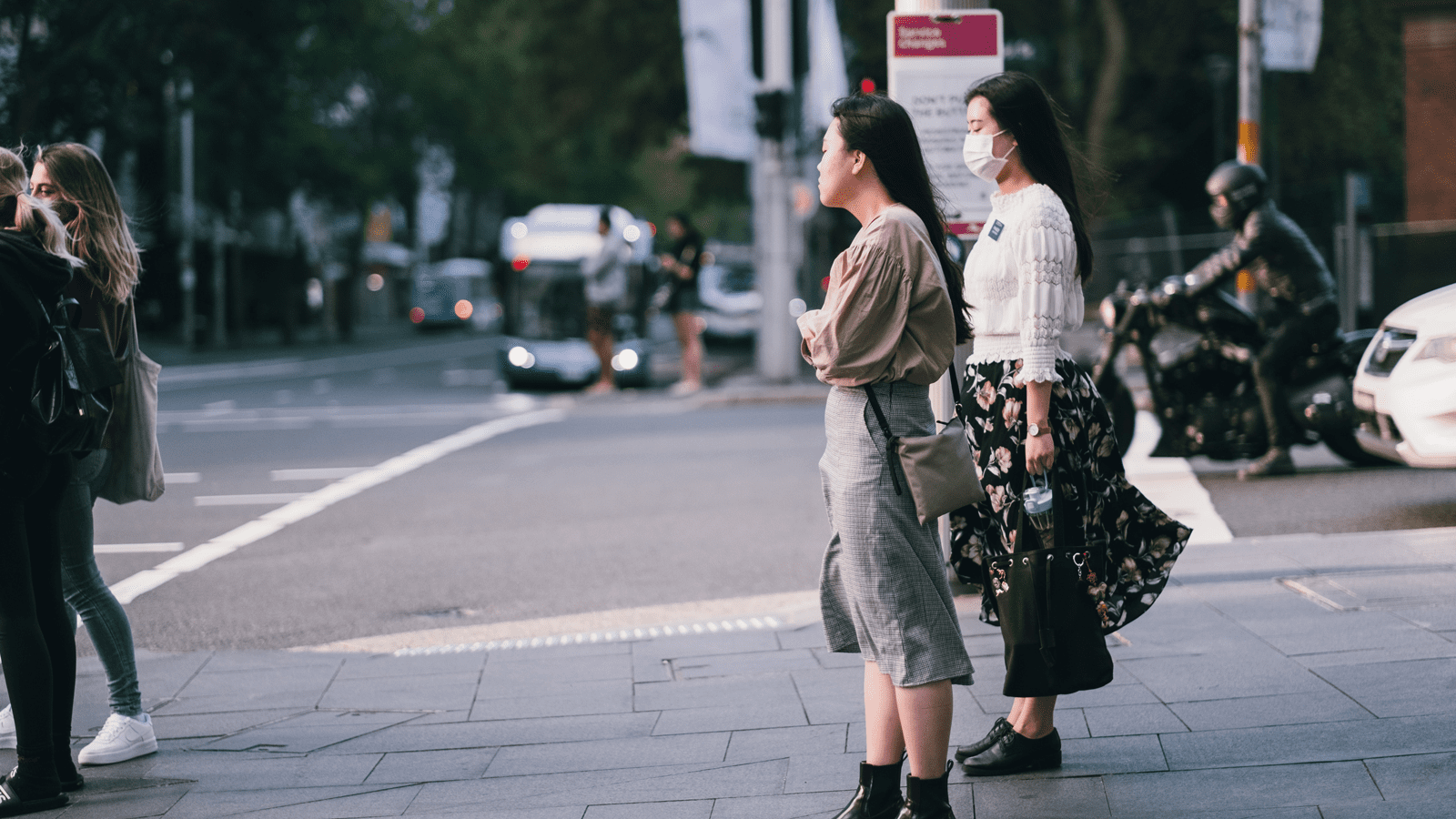
Get stories and expert advice on all things related to college and parenting.

I call myself an “almost” Asian American because my encounters with the difficulties of the Asian American experience have been, by comparison to many people, blissfully limited. Though I hold an American passport and have sole citizenship to the U.S., I spent most of my life overseas, growing up in China.
But the slew of hate crimes and racial slander against Asians this past year and most especially the recent shootings in Atlanta and the attack on a 65-year-old woman in New York City have encouraged me to reflect on the past five years I've spent in the U.S as an "almost" Asian American woman and my efforts as an Ally.
Growing up in Shanghai, I was never exposed to the cost of assimilation and the consequent issues in America and I was lucky to lack understanding of what it's like to be targeted based on the color of your skin. This granted me the ability to think of myself as an individual outside the boundaries of race, a fact I only came to realize after I moved back to the U.S. for college.
Within two weeks of moving to Colorado, I experienced for the first time what it was like for people to shy away from talking to me because they saw the color of my hair or of my skin. I learned how it felt to have people tell me they assumed my English was too heavily accented to justify forming a relationship with me.
It was disquieting how quickly I had to start thinking of my identity within the context of my race in America, rather than as an individual being.
Since moving back to the States, I have watched as an Uber driver, speeding 80 mph down the interstate with me in the backseat, turned his whole body around to look at the color of my skin when I told him I was from China, as if my American English had disproved any connection I could hope to have with an Asian heritage. I've been kicked out of the DMV because “you don’t belong here unless you are an American citizen” and listened to them deny the validity of my U.S. passport, which I tried to present to them for help, as “not enough proof.” I have studied Orientalism as the token minority in countless college classrooms, wincing at problematic statements and saying nothing, hoping desperately not to be put on the spot as the only Asian minoring in English Literature. I have lost count of how many people have asked me to “teach them Japanese” even after clarifying that I don’t speak Japanese.
During my college years, I played Russian Roulette with my identity: Chinese, American, Chinese American, Chinese Malay, Californian, Shanghainese. To be honest, I still don’t really know what to call myself despite all the time I’ve spent trying to pin down an identity that does not invite criticism or microaggressions.
And now, in my first brief year as a college graduate in the midst of a worldwide pandemic, I have watched as people like me were blamed over and over for causing the “China virus” or “Kung Flu.” I have seen many of my international friends forced out of the country due to impossible visa circumstances, and countless others — myself included — terrified to leave their homes, even just to go to the grocery store, because they didn’t want to subject themselves to being blamed (or harassed) for a disease completely outside of their control.
To me, the worst part about this current situation is that our elders are the ones being targeted.
Our parents and grandparents are the ones being slashed in the face, shoved to the ground, pointlessly harmed time and time again.
Though I am fortunate enough to not have older family members residing in the U.S., I see my grandmother in the woman forcibly pushed into a metal news box in New York and my heart breaks. I see my mother in the high school teacher assaulted in a parking lot in Seattle and my fury builds. I hear from my high school friend who recently moved to Atlanta, and they tell me how scared they are and how close they were (and are) to being yet another victim.
In short, I have learned how lucky I was to have spent my formative years as nothing more than an outsider looking in on the complexities of race in America.
This past year has forced me to face how it feels to fear for my safety and for my right to exist in this country — a feeling that is all too familiar to people of color — which in turn shone a spotlight on the selfishness of my approach to Allyship and advocacy.
The shameful truth is that I never expected to have to be anything other than an Ally, and so I advocated and shared resources with the privilege of someone with no burden and no attachment to the issue unless I chose to involve myself. I never expected to have to fight, argue and educate for my rights to this degree.
I now understand the exhaustion, frustration and sadness that comes with advocating for an issue that has an immediate effect on your personal safety and rights. For that, I am so grateful for this push to learn more and for this opportunity to see these weaknesses in how I approach Allyship.
I am making a conscious commitment to remember this feeling of exhaustion and grief, and hope that I can use it to learn to be a better advocate and Ally in the future.
In order to move forward as a society, we have to avoid pitting one race against another. I see people blaming anti-Asian hate crime perpetrators for the color of their skin and their race, and my heart sinks to see this never-ending cycle play out again.
The true fight is against this ruthless narrative of assimilation at all costs, against the idea that we fit into colored boxes based on our skin tones. We’re working towards a future where we will all be accepted as individuals, outside the boundaries of race. I look forward to the day where we can all identify and think of ourselves as individual human beings rather than part of a racial group.